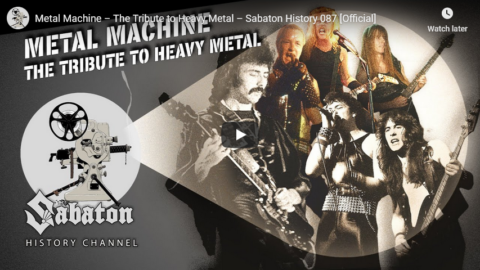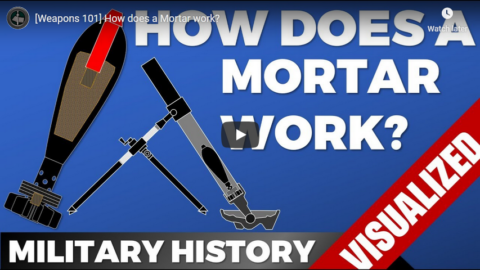Overly Sarcastic Productions
Published 2 Oct 2020To learn more about the Native Hawaiian community and their culture, visit: https://www.hawaiiancouncil.org/about
This year, to celebrate Indigenous People’s Day, we’re taking a look at the history of Hawai’i, from its early history in the Polynesian maritime culture to its forming a Kingdom to its annexation by the United States. Beyond simply a special case in the story of American expansion, Hawai’i has a deep history that deserves to be better known.
SOURCES & Further Reading: Great Courses Lecture “Lifeways of Australia and the Pacific” by Craig Benjamin, Britannica Hawai’i, “The Navigators: Pathfinders of the Pacific” By Low & Estus, Lonely Planet Hawai’i History, and lots of discussion with a native Islander (see discord section below).
This video was edited by Sophia Ricciardi AKA “Indigo”. https://www.sophiakricci.com/
Our content is intended for teenage audiences and up.
DISCORD: https://discord.gg/kguuvvq — Come to the #New-Video-Discussion channel to chat about this video, and ask questions about Hawai’i to my friend Lady Eris#9175, a native Islander!
PATREON: https://www.Patreon.com/OSP
MERCH LINKS: http://rdbl.co/osp
OUR WEBSITE: https://www.OverlySarcasticProductions.com
Find us on Twitter https://www.Twitter.com/OSPYouTube
Find us on Reddit https://www.Reddit.com/r/OSP/
October 3, 2020
History Summarized: Hawai’i
Sir John Glubb (“Glubb Pasha”), general and amateur historical theorist
In Quillette, Leo Nicolletto considers the theories of Sir John Glubb (commonly known as “Glubb Pasha”):

Glubb Pasha at a parade of the Arab Legion’s honor guard of the Jordanian army at the palace.
Detail of an original photo by Willem van de Poll via Wikimedia Commons.
Pasha Glubb was an English army officer who spent the best part of his career serving the newly-independent governments of Iraq and Jordan. An avid — if amateur — historian, he developed a theory on hegemonic orders that he called the “Fate of Empires.” Comparing a series of ancient and modern empires, he concluded that their average lifespan was 10 generations — about 250 years — and that, despite great geographic, technological, religious, and cultural differences, all empires follow a general pattern as they expand, develop, and finally decline and collapse. Although Glubb himself was the first to acknowledge the risks of over-simplification in his generalised model, his observations aptly describe, in broad-brushstrokes, not only the fate of past empires, but the contemporary situation in global politics today, particularly regarding the West and China.
Glubb was agnostic on whether the “laws” of history he claimed to uncover were at all deterministic, but hoped that, by understanding how empires decline and collapse, modern citizens stood a chance of avoiding their typical fate. And so, I want to consider ways in which the predicted collapse of Western hegemony might be averted. It’s another question whether or not such a collapse ought to be avoided. Glubb — as a man of his time and class — had imperialist tendencies, though his immersion in foreign cultures gave him an open-mindedness that is generally lacking in the present-day imperialists of Western conservative parties. At any rate, as we go along, I’ll suggest that if the West is to avoid the fate of past empires, it needs to stop acting like a typical empire. And to do that, it needs to move as far as possible from modern conservative policy — and its emphasis on corporate profit and economic growth — as it can.
* * *Glubb noted that empires tend to begin with a “breakout” phase, in which an insignificant nation on the margins of an established power — say, the Macedonians before Alexander, the Arabs before Muhammed, or the Mongols before Genghis Khan — suddenly overwhelms its neighbours. This “Age of Pioneers” becomes an “Age of Conquests” when, encouraged by early successes, the rising nation takes over the power structures of its conquered neighbour and continues to expand. Glubb noted that successful new empires are not motivated simply by loot and plunder. With an emphasis on “noble” virtues — adventurousness, courage, strength, and, importantly, honesty — rising empires don’t want simply to subdue the established power; they want to become as they perceive them to be: advanced, technological hegemons. The Arabs took over Greek and Persian institutions — as the Mongols would take over Chinese and Islamic institutions — to become masters of a revitalised and expanded civilisation.
A rising empire, argued Glubb, has at its advantage an optimistic sense of initiative, and a spirit of improvisation, that contrasts with the defensive deference to tradition found in more established powers, who have too much to lose by experimentation. The rising power, he claimed, is also typically marked by a racial homogeneity, and its members consequently feel a strong sense of duty and loyalty to their tribe. This frequently evolves into a sort of “ruling caste,” as the conquerors situate themselves at the head of the pre-existing societal order of the conquered, as happened in India, first with the Mughals, and later with the British.
Having established control over large, diverse territories, the new pax impera creates ideal conditions for trade. And so begins what Glubb called the “Age of Commerce.” The desire for honour and glory gradually becomes a desire for material riches. At first, the conquering class may participate only indirectly in such commerce. Their military success has made the roads and seas safe for merchants, whom they tax and protect, but from whom they remain aloof — indeed, it’s intriguing how low on the social scale merchants and businessmen are considered in many pre-modern cultures. But sooner or later, seeing the potential for riches, the ruling class can’t but get itself involved. However, Glubb claimed that at these still-early stages of the “Age of Commerce,” material gain is still seen in terms of national glory, an extension of political conquest. “Noble” virtues continue to be taught and idealised, above all a sense of duty to the nation.
The “Age of Commerce” thus gives way to an “Age of Affluence,” marked by great civic works and building projects, and investments in art and culture, as the rich look for ways to spend their newfound wealth. In our own day, this depiction aptly fits China. The ruling class of the Communist Party — long aloof, at least in theory, from material excess — has joined forces with the commercial classes to promote not just prosperity but fantastic wealth. All the same, many Chinese — in business as well as in engineering or research — describe their motivations just as much as a duty to the country as for their own or their family’s benefit. Success in business is a source of national pride.
Though perhaps not for long.
“Metal Machine” – The Tribute to Heavy Metal – Sabaton History 087 [Official]
Sabaton History
Published 2 Oct 2020Come touch my Metal Machine!
It is the song that serves best as a love letter to some of the greatest bands in Heavy Metal History. From Black Sabbath, to Iron Maiden, Judas Priest, to Metallica and Manowar — Metal Machine is a hymn to the musical influences of Sabaton.
Listen to “Metal Machine” on the album Primo Victoria:
https://music.sabaton.net/PrimoVictoriaListen to Sabaton on Spotify: http://smarturl.it/SabatonSpotify
Official Sabaton Merchandise Shop: http://bit.ly/SabatonOfficialShopHosted by: Indy Neidell
Written by: Markus Linke and Indy Neidell
Directed by: Astrid Deinhard and Wieke Kapteijns
Produced by: Pär Sundström, Astrid Deinhard and Spartacus Olsson
Creative Producer: Maria Kyhle
Executive Producers: Pär Sundström, Joakim Brodén, Tomas Sunmo, Indy Neidell, Astrid Deinhard, and Spartacus Olsson
Community Manager: Maria Kyhle
Post-Production Director: Wieke Kapteijns
Editor: Karolina Dołęga
Sound Editor: Marek Kaminski
Maps by: Eastory – https://www.youtube.com/c/eastory
Archive: Reuters/Screenocean – https://www.screenocean.comPictures of Black Sabbath, Judas Priest, Metallica, Manowar, Ronnie James Dio, and Mötley Crüe performing, courtesy of:
– Fernando Catalina Landa from Flickr
– Harry Potts from Wikimedia
– Raph_PH from Wikimedia
– dr_zoidberg from Flickr
– Aaron Rubin from Wikimedia
– Ozseepapa from Wikimedia
– Every Record Tells a Story
– Robson Batista on Flickr
– Shane Hirschman
– Alex Ex derivative work by Viniciusmc on Wikimedia
– MusikAnimal on Wikimedia
– Andrew King from Flickr
– Egghead06 from Wikimedia
– Diego Torres Silvestre Flickr
– Carl Lender on Flickr
– Ronald Ali-Khan from Wikimedia
– Rockman (www.rockman.no) from Wikimedia
– Catskingloves on Wikimedia
– antxoa from Flickr
– Firestormmd from Wikimedia
– Jockerre on Wikimedia
– whittlz from Flickr
– Edd from Flickr
– Drums600 from Wikimedia
– Mathias Trumpp from Wikimedia
– TommyD2019 from Wikimedia
– fürschtua from Flickr
– Bjornsphoto from Wikimedia
– Simon Davison from Flickr
– Mickey Sanker from Wikimedia
– Bjornsphoto from WikimediaVisual sources:
– National Archives NARA
– 20 minutos
– Icons from The Noun Project: Amplifier by Lee Mette, guitarist by ProSymbols and Marvdro, News Ad by Priyanka, Drum by Gan Khoon Lay.All music by: Sabaton
An OnLion Entertainment GmbH and Raging Beaver Publishing AB co-Production.
© Raging Beaver Publishing AB, 2019 – all rights reserved.
“The Tory party, desirous of a fat majority, will sell the country out over Europe”
In The Critic, Gawain Towler sees a major opportunity for Nigel Farage and the Brexit Party:
The simple fact is that this Government had the opportunity to do something about our negotiations with the EU in the months after the election. They had a whopping great majority and the goodwill of the nation. Boris had used his ebullience to present the country with a vision that with one bound we would be free, the deal was oven-ready, he was going to get Brexit done. Yes, he had inherited the Withdrawal Agreement, a deeply duff deal, from his predecessor. His resignation as Foreign Secretary over it gave us the confidence that he recognised it as such. And yet on the 25 January, a mere month after his triumphant election victory, he signed that same duff deal and condemned the country to this slow lingering betrayal. It was not necessary to do so, he could have pointed to the election, the vote, and with the support of the country gone to Brussels and made it clear he would not sign. This he signally failed to do.
So here we are again, with the EU making threatening noises, taking legal action with leaks coming out of Berlin and London suggesting that the UK is prepared to make more concessions. A No 10 spokesman confirmed that “The PM will be speaking to President von der Leyen tomorrow afternoon to take stock of negotiations and discuss next steps.”
According to Bruno Waterfield of The Times, “This is seen broadly as a good sign – if, as expected, the British prime minister is ready to signal a bit more give on fish, state aid and subsidy control”.
Note the “more give” – there has already been a lot of giving.
The thing is that Boris is beset with problems, with the Remain lobby, both on his own green benchers and elsewhere; yet again digging up dire predictions of economic meltdown, the CBI taking the lead. The ERG group of Tory sceptics have been oddly quiet, focusing more on Covid-19 than on the clear danger of a failed Brexit. There is no pressure on one side, and a great tidal wave of it pushing him to make a deal at any cost.
Then there is the electoral arithmetic. This shouldn’t matter so far out from an election, but the rumours of Boris’s political demise and the currents swirling around the Chancellor make Labour’s slight lead in the polls a matter of concern. Labour is beginning to solidify after years of infighting, but it is not cutting into Tory support.
That is where Nigel Farage and the Brexit Party come in.
[Weapons 101] How does a Mortar work?
Military History Visualized
Published 25 Mar 2016Patreon: https://www.patreon.com/join/mhv
Modern mortars evolved from the so-called “Stokes Mortar”, but the basic principles still apply. This video gives you a short overview on mortars.
A modern mortar is a weapon that provides short-range indirect fire at high angles, usually between 45 and 80 degree. Unlike traditional (old) mortars it was relatively small and mobile, which made it well-suited for trench warfare and also maneuver warfare, because unlike unwieldy artillery it could be used directly by the infantry units at the front line.
Script and further information here: http://militaryhistoryvisualized.com/…
—Social Media—
twitter: https://twitter.com/MilHiVisualized
tumblr: http://militaryhistoryvisualized.tumb…—Sources—
–Books–
Hogg, Ian V.: The Illustrated Encyclopedia of Ammunition–Websites & Links–
Great video that shows the removal of several augmenting charges at around 3:00
https://www.youtube.com/watch?v=hpy9O…http://www.globalsecurity.org/militar…
—Notes on Accuracy & “Methodology”—
Note that the mortar shell and mortar are not of the same type (and diameter in real life), but the functionality is similar.
1) The depicted Mortar Shell is a 8cm Wgr 38.
2) The depicted detailed Mortar is roughly a Esperanza 60mm Model “L” Mortar.
3) The depicted Mortars in the beginning are US M2 60mm mortars.
QotD: Literal first world problems
Many of today’s concerns, however valid or invalid any of them might be, are luxury concerns. Only rich people – by which I mean people whose standard of living is roughly that of ordinary citizens of first-world countries in the early 21st century – can afford to worry about the likes of climate change, species loss, the manner in which chickens are raised, urban sprawl, how locally “sourced” is the eggplant that we eat, and rising Gini coefficients.
Again, I don’t say that these and other modern concerns are invalid. Some are and some aren’t. But it’s good to pause from time to time to be thankful that we’re wealthy enough to have escaped most of the daily, much more horrible concerns that pressed immediately upon our ancestors. It’s appropriate to be grateful that we’re rich enough to worry about, say, what might happen in a few decades to the sea level in a distant country rather than about whether or not our children will die of starvation during the night.
Don Boudreaux, “Quotation of the Day…”, Café Hayek, 2018-05-27.







